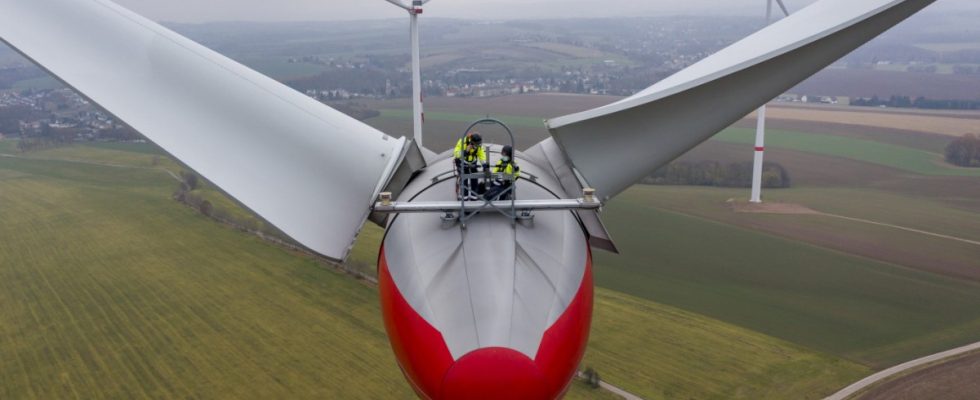The European Court of Auditors accuses the EU Commission and the member states of a non-transparent and directionless climate policy. The Brussels headquarters only have a partial overview of which measures to reduce greenhouse gases have proven successful so far and how expensive they were. There is no adequate financial plan for the ambitious goals up to 2030 and beyond. “We found few signs that the EU will achieve its goals,” said Joëlle Elvinger, Member of the Court of Auditors, on Monday.
It’s a rebuke just days before member states are due to submit updated National Energy and Climate Plans (NECPs). The EU has decided to reduce its greenhouse gases by 55 percent by 2030 compared to 1990. There was also a renewable energy investment program (“REPowerEU”) to become independent of Russia’s oil, gas and coal. But both cost money. The auditors estimate around one trillion euros annually.
Germany has to buy emission rights from other countries
Around 87 billion euros per year are to come from the EU budget between 2021 and 2027. So less than ten percent of the necessary sum. The nation states and private investors are to contribute the rest. So far, however, the national plans have lacked “information on investment needs and sources of financing”. The auditors are therefore puzzling over where the money is supposed to come from and how the climate goals are to be achieved.
Although the auditors found in their report that the EU was doing well in a global comparison with other industrialized countries, it also achieved its climate goals for 2020. However, sometimes she doesn’t even know why. It is unclear how big the role of the 2008 financial crisis and the 2020 corona pandemic was.
In addition, the EU has so far left out two big CO₂ chunks: international air and shipping traffic. As well as emissions arising from the production of imported goods from third countries. According to the Court of Auditors, this leads to a ten percent higher balance sheet. However, the EU wants to change both in the future, with a CO₂ tariff to protect its own, then climate-neutral economy.
The Court of Auditors criticizes the lack of transparency
In the period from 2013 to 2022, Germany was one of three countries that did not achieve its goals. This was mainly due to the areas of buildings and transport. As part of the so-called burden sharing, Berlin therefore had to buy emission rights from Bulgaria, Hungary and the Czech Republic that had exceeded their targets. How much Germany had to pay is not published by the EU Commission, the Court of Auditors criticizes this lack of transparency. It should be many millions of euros.
The Federal Ministry of Economics complained about this legacy in February, but it was said that once again they got away with it cheaply. If buildings and traffic continue to emit too much CO₂, the fines would be much higher in the future. According to the forecast by the Öko-Institut, it will then be in the billions.

